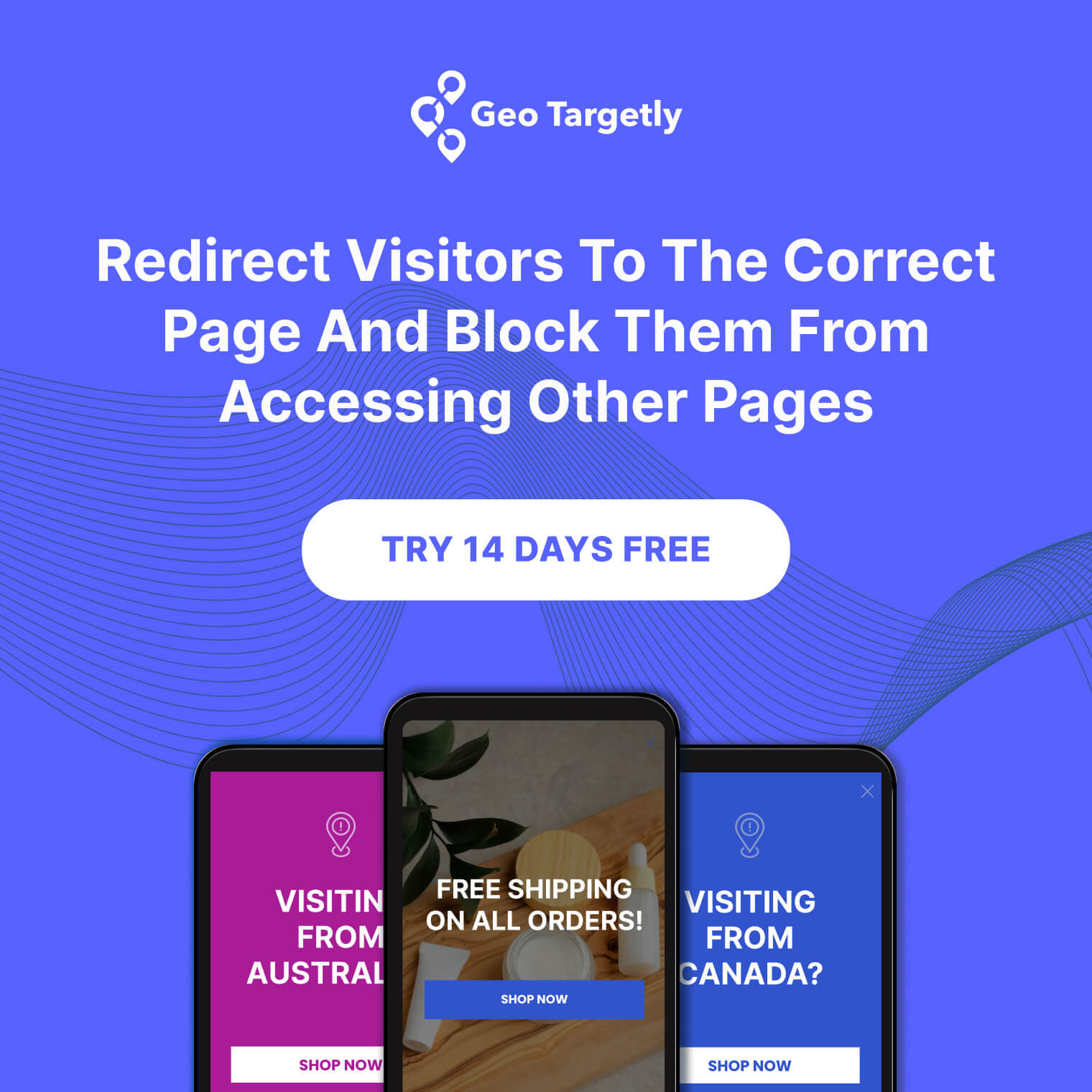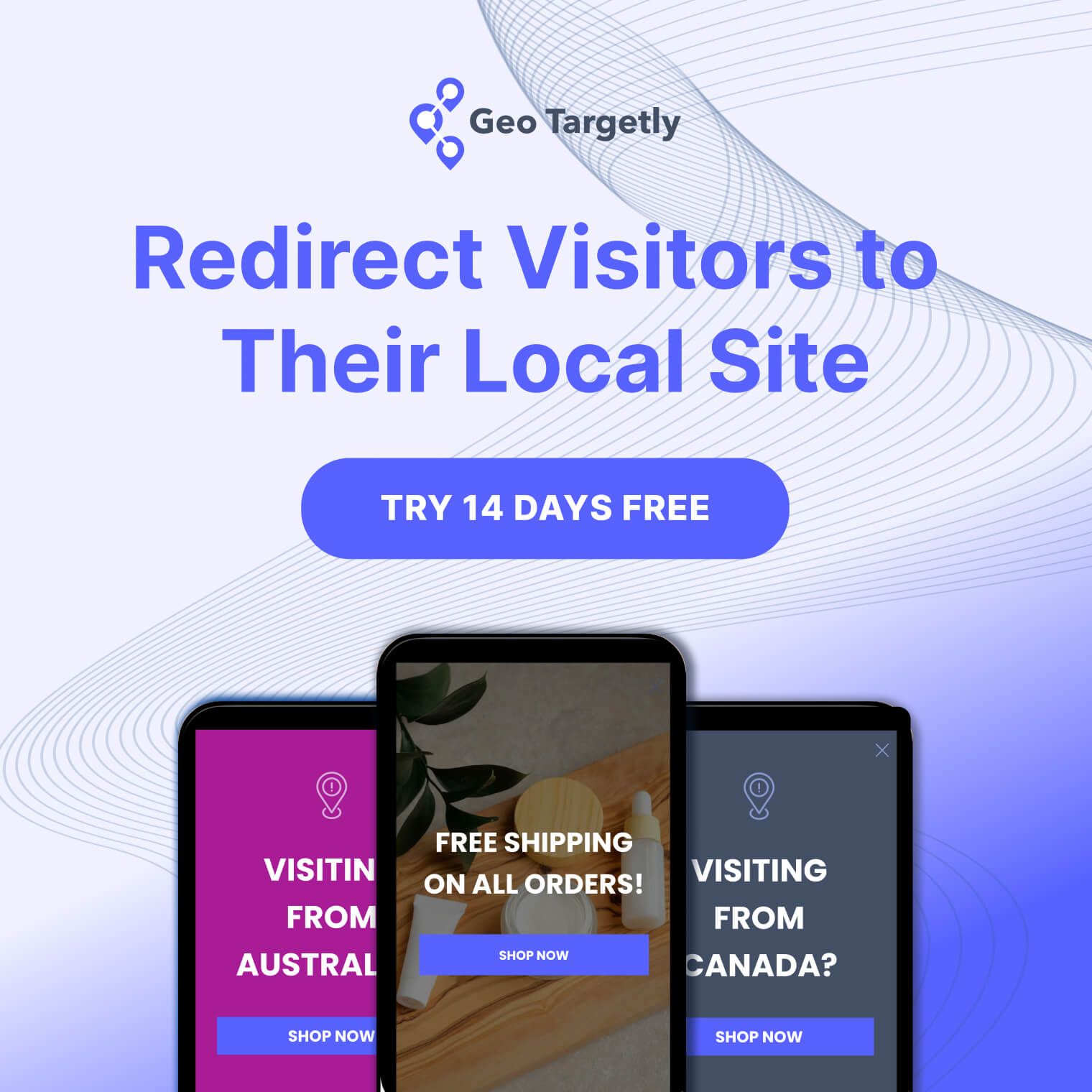

In a world where consumer choices are driven by convenience and accessibility, online stores have become a crucial component of the modern business strategy.
Unlike physical stores, online stores allow customers to shop whenever and wherever they want. For businesses, this flexibility means the ability to:
- Reach a broader customer base beyond their local area.
- Offer a 24/7 shopping experience.
- Save on rent, utilities, and in-store staffing.
- Personalize experiences for customers, thereby boosting customer loyalty.
With over 2.64 billion people, more than one-third of the global population, browsing and buying from digital storefronts in 2026, there's no better time for businesses to tap into this growing customer base with an online storefront.
However, for most businesses, finding the right e-commerce platform is a challenge. To make your job easier, we’ll explore the top 10 e-commerce platforms in this guide, comparing features, pricing, and unique strengths so you can find a platform that best supports your business goals.
Best e-commerce platforms, according to us
Selecting the best e-commerce platform is like laying the foundation of your online store. A robust platform will help you efficiently manage sales, automate processes, and create a customized and user-friendly shopping experience–all without needing extensive technical skills.
To make the job easier for you, we gathered a list of almost all the popular e-commerce platforms out there. We evaluated each one on key factors such as user-friendliness, pricing, customization, and customer support.
We also looked at real-world user reviews to understand how the platforms perform in everyday scenarios.
After carefully considering and experiencing how it feels to set up and run an online shop on these e-commerce platforms, we have compiled a well-rounded list of the 10 e-commerce platforms we believe stand out in 2026.
The top 10 e-commerce platforms
Choosing the right e-commerce platform is crucial for building and scaling your online store. Here’s a breakdown of the top 10 platforms, starting with Shopify, a leading hosted solution.
1. Shopify: Best hosted solution
With over one million active users, Shopify is one of the most popular e-commerce platforms in the world. Known for its ease of use and extensive app ecosystem, it gives you everything you need to launch a professional-looking online store, even if you have zero technical experience.
Features
- Drag-and-drop store builder with customizable templates that help you create a live Shopify store optimized for search in a few hours.
- Mobile-friendly themes to optimize your online store for every device your customers use.
- Shopify Magic, an AI tool that helps generate compelling product descriptions that you can adjust and publish.
- Built-in payment processing (Shopify Payments) and integration with major payment gateways.
- The Shopify App Store features 27 checkout apps, including apps for upselling, cross-selling, loyalty, reward programs, post-purchase surveys, etc.
- Integration with popular shipping apps, including UPS Shipping, ShippingEasy, ShipStation, and EasyShip.
- Multi-channel selling, including integrations with Amazon, eBay, Facebook, and Etsy
- SEO and marketing tools that help create a successful e-commerce presence, such as discount codes, targeted social ads, blogging capabilities, customer reviews, abandoned cart recovery notifications, etc.
- Detailed analytics and reporting for making strategic business decisions.
Pricing plans
Shopify lets you try the platform free without a credit card for 14 days before committing to a paid plan. There are four paid plans (all billed annually) you can choose from:
- Basic Shopify ($24/month) – Ideal for solo entrepreneurs, new or small stores.
- Shopify ($69/month) – Recommended for growing businesses.
- Advanced Shopify ($299/month) – Suitable for established and growing businesses with higher sales volumes.
- Shopify Plus ($2,300/month) – Designed for high-volume enterprises.
In addition to monthly fees, Shopify charges a fee if users choose a payment processor other than Shopify Payments–2% for the Basic plan, 1% for the Shopify plan, and 0..6% for the Advanced plan. With all the plans, you can enjoy unlimited storage, discount codes, unlimited bandwidth, 24/7 customer support, unlimited products, and the ability to promote your product on multiple sales channels.
Who should use Shopify?
Shopify is designed to support individual business journeys, and hence, it can be great for everyone. However, it is best for small to medium-sized businesses looking for a quick, reliable, and user-friendly platform to launch and grow their online stores. Shopify will scale seamlessly as your business grows by offering advanced functionalities like multiple inventory locations and localized selling tools.
User reviews and ratings
“It's the best platform for e-com by a mile. I dont know what anybody has to complain about. You get out what you out in. It's so stable, and apps are incredible for small to enterprise-sized businesses. The fees are reasonable, and I can not fault them. Well recommended,” Daniel wrote about Shopify.
2. Wix: Best beginner-friendly platform
Wix is perhaps the most user-friendly e-commerce platform you’ll find on the market. It has an intuitive drag-and-drop interface will let you design a unique online store without technical expertise. You can get started by signing up using your email address.
Features
- Over 900 templates to design a website that fits your industry and business standards.
- Built-in SEO features, such as customizable URLs and metadata, to optimize your online store for the website.
- Integrations with powerful third-party apps, such as Semrush and Google My Business, for keyword support and advanced insights.
- Wix App Market features an email marketing suite that helps your business connect with its audience and build engagement. You can customize email templates, set up automation, and view email-specific analytics to fit your brand.
- Wix can auto-translate website content for your readers into the 180 languages it supports.
- Sales features include discounts, abandoned cart recovery, back-in-stock notifications, etc.
- Wix’s AI website builder comes with tools that will give you suggestions for color themes, page sections, website content, product descriptions, meta titles and descriptions, marketing content, etc.
- Wix’s app market features plenty of third-party to install, both free and paid. For example, Wix’s own apps, like Wix Bookings and Wix Pro Gallery, are free to use, while others, like the Smile app, cost an additional fee. You can add as many optional extras as you want.
- All websites created on websites get a free SSL certificate that encrypts your site.
- 24/7 customer support via phone and live chat, as well as helpful guides and resources.
Pricing plans
With Wix, you can build a basic website for free. However, you must upgrade to a paid plan to access the platform’s entire e-commerce features.
Wix offers four paid plans:
- Light Plan ($17/month) – For building small, informational websites.
- Core Plan ($29/month) – Switch to this plan when you want to start selling and accepting payment.
- Business Plan ($36/month) – For small but growing businesses.
- Business Elite Plan ($159/month) – For established online stores.
The main differences between these plans lie in the storage space, the number of collaborators, and the marketing suite. With the Light plan, you’ll get 2GB, with the Core plan, 50 GB, with Business, 100 GB, and with Business Elite, you get unlimited storage space.
Who should use Wix?
Wix is best for small to mid-sized businesses, entrepreneurs, and creatives looking to create a simple and visually appealing online store. It will help you build your brand and sell your small product line. Wix won’t suit larger online stores because its lack of tools and features requires complex inventory needs.
User reviews and ratings
“I have been using WIX Web Design since 2020/21. I have been so happy with everything for my online store. My store looks professional, shows my personality, and is great and welcoming to look at. There is always someone on hand to assist if needed, either by phone, webchat or email etc. I have used 2 previous Web Design companies in my previous company and WIX is by far the best one. It is so easy to set up. There are tutorials on YouTube too by WIX which help tremendously, when you might want something a little different or a recap on how to do something. I enjoy maintaining my site. It is a pleasure. The Customer Service Team are excellent. They are so helpful, insightful and stay with you until the task in hand is done to your satisfaction,” Tracey Jackson wrote about Wix.
3. BigCommerce: Best for merchants
Featuring an open SaaS model, BigCommerce is an all-in-one e-commerce platform where users can build online stores without any coding experience. Unlike many other platforms in this list, BigCommerce has built-in features and strong SEO capabilities, saving you the time and hassle required to set up numerous add-ons. This makes it a great choice for anyone serious about starting and growing an online business.
Features
- Marketplace, aka BigCommerce’s extensive template library, features plenty of stunning designs that fit various categories, such as fashion, electronics, sports, food, beauty, and more.
- Allows selling on online marketplaces like Amazon, Amazon Prime, Walmart, eBay, Facebook, and more to expand your reach–the inventory syncs automatically across all channels.
- Publish multilingual websites or have separate websites with unique catalogs for different countries.
- The platform's app marketplace includes various add-ons for expanding store functionality, covering everything from shipping solutions to email marketing tools.
- Integration with global payment solutions, including Apple Pay, PayPal, Amazon Pay, and more, with no additional transaction fees. You also get the ability to accept payments in over 100 currencies.
- Technical assistance is available 24/7 via phone, live chat, or email.
Pricing plans
BigCommerce offers four paid plans:
- Standard ($29/month) – For individual and small brands.
- Plus ($79/month) – For growing small to medium-sized businesses.
- Pro ($299/month) – For fast-growing businesses.
- Enterprise (Custom) – For established brands with advanced needs.
All plans come with a free trial of 15 days, where you can test the platform and its features before investing. Regardless of the plan you choose, you pay no additional transaction fee.
Who should use BigCommerce?
While the vast number of features can intimidate some businesses, all the extra strengths you get with BigCommerce are worth the investment. Since the platform is designed for large-scale retail, it would make a perfect choice for enterprise-level companies looking for a robust and scalable solution with minimal need for third-party apps. In addition, though BigCommerce doesn’t require you to have coding experience, it isn’t particularly beginner-friendly. So, it would help if you have a technical team to support you.
User reviews and ratings
“I have been using Big Commerce for at least 10 years. The site building tools are very intuitive and simple to use. To me one of the most important features of an ecommerce hosting site is customer service. Big Commerce has FANTASTIC customer service. Anytime I have questions or a problem that has to be resolved I call and speak with a real living human. The customer support reps are very knowledgeable and personable. When you speak to them they actually think and use their intelligence to find a solution for your issue. I highly recommend Big Commerce!,” Michael G. wrote about BigCommerce.
4. Adobe Commerce (Magento Commerce): Best for integrations and customizations
Formerly Magento Commerce, Adobe Commerce is a non-hosted e-commerce platform favored by large businesses and enterprises. It is built on the foundation of the Magento platform, integrates with the Adobe Experience Manager, and is equipped with features necessary for building multi-channel commerce experiences.
Features
- Integration with Google Analytics, Google Search Console, and other third-party apps, such as SEMrush, Ahrefs, and MOZ, to track website traffic, analyze user behavior, conduct keywords, and maintain website presence.
- Adobe Marketplace features plugins and add-ons to expand the capability of your online stores. In addition, you can download apps from third-party developers and install them on your merchant’s store.
- Advanced SEO features such as structured data support, clean URL management, and meta tag customization to improve search engine visibility.
- Integrates with Adobe Marketing Cloud, which helps create targeted marketing campaigns and analyze customer data across multiple channels.
- Robust security measures to protect online stores from potential threats.
Pricing plans
Adobe Commerce offers custom pricing options based on your individual needs. You can choose between two plans–Adobe Commerce Pro and Managed Services. The former is a subscription-based e-commerce platform with all the necessary features for businesses looking to sell their products online. The latter is a custom solution for larger companies with high performance and security requirements. It helps businesses optimize their e-commerce operations and includes personalized support, consulting services, and integration with other Adobe solutions.
Who should use Adobe Commerce?
Adobe Commerce is good for large enterprises, high-growth brands, and complex businesses that require a high level of customization and have high traffic demands. However, only opt for this platform if you have an in-house development team or the budget to hire expert developers.
Adobe Commerce may be too complex and costly to maintain for smaller businesses or those without dedicated technical resources.
Given the complexity and cost of managing Adobe Commerce, some businesses turn to certified implementation partners. Companies like Elogic Commerce specialize in customizing and supporting Adobe Commerce solutions to meet specific business needs.
User reviews and ratings
“I love how I can customize my website with this platform. It does take long hours to program the entire website, it took me 40 hours of work but I finally finished my store front,” Jason Patterson wrote about Adobe Commerce.
5. WooCommerce: Best for WordPress users
What makes WooCommerce popular is how it is built on WordPress. It isn’t necessarily an e-commerce platform. Rather, it is a free, open-source plugin that can be used to customize your website built on WordPress and turn it into a fully functional online store.
Some businesses find WooCommerce’s add-on structure to be an advantage. However, for others, choosing and managing the features they want through different plug-ins and extensions can be challenging.
Features
- Full access to the codebase allows businesses to enjoy complete control over the look and functionality of their store.
- An open-source foundation that makes customization and integration with third-party tools easier.
- Integrates with major payment gateways, like PayPal, Stripe, Amazon Pay, Apple Pay, Square, Google Pay, etc. You can also accept major credit cards, checks, bank transfers, and cash on delivery, and you can customize the checkout flow to optimize conversions.
- Supports listing various product types, from digital content to physical products, subscriptions, appointments, bundles, and more.
- The Woo Marketplace has numerous free and paid extensions that let you create an advanced e-commerce website using customizable themes, marketing integrations, store enhancements, and other features.
- Flexible shipping options, including flat-rate, free, and location-based shipping. It automatically calculates taxes based on location, making it easier for businesses to comply with regional tax requirements.
- Woo translates content into 24 languages, including Ukrainian, Persian, and Danish, making your online store more customer-friendly and inclusive.
Pricing plans
WooCommerce’s base plugin is free, but additional e-commerce features, such as hosting, a custom domain name, SSL certificates, etc., can cost extra. Since WooCommerce is self-hosted, users should also pay separately for hosting.
Who should use WooCommerce?
WooCommerce is ideal for small to medium-sized businesses already using WordPress and want complete control over their online store’s design and functionality. It is also an excellent option for brands focused on SEO and content marketing.
On the flip side, it may not be the best choice for high-traffic stores or businesses seeking a fully managed solution, as it requires a fair amount of technical knowledge to set up and manage.
User reviews and ratings
“Extremely flexible, and the killer app if you sell virtual or downloadable goods. Save yourself the time of messing about with other ecommerce platforms. I've been a web-dev for 15 years and like to stay abreast of latest tech, which always appears from marketing materials to be better than Wordpress + Woocommerce. They never are!,” Rich Cook wrote about WooCommerce.
6. Volusion: Best platform with great marketing tools
Established in 1999, Volusion has been one of the leading platforms in the e-commerce world for over two decades. It is known for its robust inventory management system, mobile app, and excellent store setup sequence, which makes setting up and managing your store hassle-free.
Features
- A comprehensive inventory management system with handy features like product video options, suggested product sections, automated reordering, etc. (Beneficial for businesses with multiple SKUs to keep stock organized and up to date).
- Integrates with all major payment gateways, including Stripe and PayPal, and digital wallets like Amazon and Apple Pay.
- The mobile app lets you manage your online store on the go.
- Supports more than 1000 apps (including everything from accounting to customer management) through Zapier, allowing for excellent customization of the online store.
- Use AES-256 encryption algorithms to secure data.
- Integrates with third-party marketplaces like Amazon and eBay.
- Support is available through 24/7 live chat and email. Phone support is only available for professional and business plans.
Pricing plans
Volusion offers a 14-day free trial without requiring a credit card. All you have to do is enter a few details about you and your business. After the trial, if you like Volusion, you can choose from four paid plans.
- Personal ($35/month)
- Professional ($79/month)
- Business ($299/month)
- Prime (Custom quote based on your Gross Merchandise Volume (GMV).)
It is worth noting that none of the paid plans include SSL certificates to secure checkouts. You can either buy a certificate from Volusion or another provider. If you purchase the certificate from Volusion, they will install it for free, but if you already have a certificate or get it from another provider, you will have to pay extra for installation.
Who should use Volusion?
Volusion doesn’t support digital products and lacks blogging functionality. For these reasons, it isn’t the right fit for businesses looking to sell ebooks, online courses, etc., or generate tons of content. The platform is also expensive, so it is not a good choice for businesses with a small budget.
However, Volusion would be an ideal option for tech-savvy businesses needing various e-commerce tools to build a scalable online store. It will also help if you want the ability to manage your site on the go through a mobile app and plenty of options to process payments.
User reviews and ratings
“I have used Volusion for many websites dealing with eCommerce and corporate information. While there is a learning curve and it's more difficult to use than a website creator like "Wix", once you get the hang of it, you can really build a website that suits your every need. If you get stuck or are not sure how to do something, their team is always available and ready to help. Most issues the support team helps out for free. If you want a complete re-design of the website, their design team is amazing and pay attention to detail. The SSL certificate included with your plan makes your website secure and trusted and their built-in SEO tools can really make or break your business,” Joshua wrote about Volusion.
7. Miva: Best for complex business needs
Miva is a complete e-commerce platform that’s both flexible and customizable. It is primarily designed to help B2B and B2C businesses drive sales, cut costs, and increase revenue. Hence, it features enterprise-grade capabilities, which allow it to handle everything from sophisticated product catalogs to complex pricing strategies. In addition, it features a modular architecture where users can fine-tune every aspect of their store.
Features
- B2B-specific features–from account-dependent product access to custom pricing for B2B buyers, automated reordering, live inventory visibility, and more.
- Template-layer editing allows you to make changes to your site without touching the source code.
- Seamless API integrations with ERP systems, CRMs, and shipping solutions.
- Powerful sales features to maximize engagement and improve customer spend, such as dynamic product recommendations, promotion management, abandoned cart tools, etc.
Pricing plans
Miva doesn’t offer subscription plans. Instead, its price structure is tailored. You can go to their website and submit a form for a free consultation with their e-commerce solution specialist, after which you’ll be given a custom quote based on your business size and needs.
Who should use Miva?
Miva keeps investing in developing its core competency as an e-commerce platform to address modern businesses’ most pressing needs. For this reason, it is ideal for established businesses needing robust customization and integration capabilities, along with superior security features. It is often one of the top choices for companies that require complete control over their online store’s functionality and design.
User reviews and ratings
“Miva has been a solid platform. It is stable and moderately easy to use. We have a complicated business model with many requirements. There is a growing number of developers that can build out needed features for our success. Wholesale pricing levels for multiple customer groups. They are expanding many features and addressing the pain points we have as a growing business,” Jacob K. wrote about Miva.
8. Kajabi: Best for digital products
Unlike most other platforms on this list, Kajabi is explicitly designed for knowledge entrepreneurs. It is an all-in-one platform for creator-led businesses that want to sell online courses, coaching programs, podcasts, memberships, and any other digital products. Beyond the user-friendly interface and tools for marketing, e-commerce, and content management, what makes Kajabi a great platform is that it lets you build your online store with zero coding knowledge or experience.
Features
- A product builder equipped with free AI tools with customizable templates and design tools to build unique digital products.
- Email marketing software that helps create engaging emails that can drive your sales.
- Templates for various automated funnels useful for lead generation, sales, and webinar funnels.
- Mobile app to manage your products on the go.
- Kajabi payment gateway allows creators to easily accept credit cards, debit cards, Stripe, and PayPal payments.
- The analytics dashboard helps track revenue, customer engagement, marketing performance, offers sold, and other metrics.
- 24/7 support is available via live chat, tons of free resources, and a vibrant community where you can get answers and support. In addition, Kajabi University offers detailed training that helps master Kajabi’s tools.
Pricing plans
Until recently, not everyone was able to afford Kajabi’s plans. So, they added the Kickstarter plan to their pricing list. Currently, you can choose from the following plans.
- Kickstarter ($27/month)
- Basic ($59/month)
- Growth ($79/month)
- Pro ($159/month)
Kajabi offers complete access to its tools through a 14-day trial, during which you can see if the platform is a good fit for your business.
Who should use Kajabi?
It might already be evident that Kajabi is ideal for content creators, coaches, consultants, and businesses focusing on digital products. However, among knowledge-based entrepreneurs, Kajabi is more suitable for those who want to sell courses or need an all-in-one solution to build, market, and sell their offerings.
User reviews and ratings
“Kajabi made my experience great by providing an all-in-one platform that streamlined every step of building and launching my online courses and content. From creating visually engaging landing pages to setting up automated email sequences and managing payments, Kajabi took the complexity out of the process. Its user-friendly interface made it easy to build funnels and lead magnets without any coding skills. Plus, the analytics tools give me clear insights into performance, so I know what’s working and where to improve. Kajabi’s seamless experience has allowed me to focus on delivering value, knowing the technical side is handled,” Fredrik wrote about Kajabi.
9. Squarespace: Best for building attractive websites
Squarespace is another great website builder known for its aesthetic templates and user-friendly interface. Though initially geared towards bloggers and creatives, it has become a fantastic option for small to mid-sized businesses, featuring powerful e-commerce tools for selling, managing inventory, and promoting products.
Features
- The website builder offers over 100 crafted templates separated into different categories and is equipped with an AI tool that can create content for landing pages, product descriptions, and email campaigns.
- Acuity scheduling tool makes scheduling appointments, managing timing, and setting prices hassle-free.
- SEO panel where you can manage the entire site’s SEO, including image alt text, automatic sitemaps, mobile optimization, etc.
- Analytics page where users can check their traffic, engagement, and sales stats. In addition, the online store can be connected to Google Analytics to tap into more features.
- Purchase Funnel gives insights into customer engagement, such as how many customers bought the product, how long they stayed on a page, etc.
- Email Campaigns help automate workflows, engage with subscribers, and track email-specific analytics.
- White glove website security for all online stores, which includes a custom domain bundled with a free SSL certificate.
- 24/7 email support, a community forum, and a help center featuring guides, tutorials, and webinars.
Pricing plans
Though Squarespace doesn’t offer a free plan, its four premium options are fairly affordable.
- Personal ($16/month when paid annually; $25/month when paid monthly)
- Business ($23/month when paid annually; $36/month when paid monthly)
- Basic Commerce ($28/month when paid annually; $40/month when paid monthly)
- Advanced Commerce ($52/month when paid annually; $72/month when paid monthly)
All plans offer a 14-day free trial, and you can cancel your plan anytime without hassles.
Who should use Squarespace?
Squarespace is ideal for small to mid-sized businesses, creative professionals, and service providers who value a design-focused website. It’s also perfect for beginners, thanks to its drag-and-drop editor. Squarespace wouldn’t be as cost-effective for larger businesses due to its limited scalability and lack of supported languages.
User reviews and ratings
“I've had Squarespace for YEARS and it's been nothing short of fantastic. Their customer service team are incredibly helpful, and I've never been left waiting to get something fixed. My website ranks highly, its easy to customise and I love the layouts they offer,” Emily Marsh wrote about Squarespace.
10. Zoho Commerce: Best feature-packed platform
Zoho Commerce is a feature-rich e-commerce platform that seamlessly integrates with the Zoho ecosystem. Hence, it is often the top choice for businesses already using Zoho’s suite of tools. Beyond building an online store, Zoho Commerce also helps businesses accept orders, track inventory, process payments, manage shipping, and even market the brand.
Features
- Drag-and-drop interface to build an e-commerce platform without any coding experience.
- Professional-looking templates that fit various industries and niches.
- Built-in SEO tools to improve the store’s visibility and attract more customers.
- Integration with multiple payment gateways like PayPal, Stripe, and Authorize.
- Detailed reports and analytics provide insights into sales trends, customer behavior, and traffic.
- Inventory management that syncs with Zoho Inventory allows for the real-time tracking of stock levels across multiple channels.
- Tools to manage shipping help calculate real-time shipping rates.
Pricing plans
Zoho Commerce offers a 14-day free trial, and it doesn’t require a credit card. When it comes to paid plans, Zoho Commerce gives you 3 choices:
- Starter (£18/ approx. $24 per month)
- Professional (£48/ approx. $62 per month)
- Advanced: (£112/ approx. $144 per month)
No matter which plan you choose, Zoho Commerce charges zero transaction fees.
Who should use Zoho Commerce?
Zoho Commerce is ideal for small to medium-sized businesses that already use Zoho’s ecosystem of products, such as Zoho CRM and Zoho Inventory. It will help you streamline operations without relying much on third-party apps. On the flip side, businesses needing extensive customization options will find Zoho Commerce limiting.
User reviews and ratings
“The sales professionals were informed and helpful rather than pushy. The platform itself is very intuitive, easy to integrate with other systems, and helpful for small companies. The cost is great for the functionality.” Alexis wrote about Zoho Commerce.
How to choose an e-commerce platform
Choosing an e-commerce platform for your online store is a big decision that can make or break your business. The platform you choose can shape everything from how smoothly customers can navigate your site to how easily you can manage orders. More than a technical decision, it is a strategic one that can impact growth, customer experience, and long-term success.
With so many platforms out there, each with unique features, pricing plans, and design options, finding the perfect fit can be overwhelming. Whether you’re launching your first store or updating an existing one, creating a list of features you want in your e-commerce platform can help. If you’re unsure, here’s a guide to help.
Usability: Ease of setup and management
If you’re new to online selling and aren’t particularly tech-savvy, you’ll need a user-friendly platform.
Look for features like drag-and-drop builders, pre-made templates, clean dashboards, and simple inventory management. These will help you swiftly get your store up and running. Also, consider e-commerce platforms that offer demos, tutorials, or even setup wizards and reliable customer support that can assist you whenever you hit a snag.
A user-friendly e-commerce platform will help you spend less time wrestling with tech and more time building your brand.
Features and Functionality: Payment gateways, SEO tools, Customization
The features and functionality of a platform will determine how you run and scale your online store. Three aspects you should pay close attention to when searching for an e-commerce platform include payment gateways, SEO tools, and customization capabilities.
Checkout is a core component of every online business. Hence, you need a safe and dependable way to accept payments. Consider platforms that can integrate with widely-used payment gateways so your customers can pay in a way that’s convenient for them. This can be through credit cards, digital wallets, or other international payment options.
Before you can accept payments, you should make your store visible to potential customers, for which you’ll need a strong SEO toolkit. E-commerce platforms with built-in SEO features like customizable URLs, meta tags, and image alt texts can significantly help improve your search rankings.
Finally, make sure the platform you choose will help you create unique shopping experiences for your customers through personalization and branding. Rather than pre-made templates, look for e-commerce solution providers that will let you customize these templates without needing to code. Some platforms also support advanced customization through APIs.
Scalability: Ability to grow with your business
You want a platform that grows with your business, not one that holds it back. Whether it’s handling a surge in traffic during peak seasons or supporting new product lines, a scalable e-commerce platform will help lay the foundation to grow without interruptions.
Consider a platform that allows you to add new features as you go. For instance, some platforms will enable you to expand your storage and bandwidth and add extra features like automated workflows, marketing integrations, etc. This flexibility means you can grow without limitations and control costs while scaling up.
Cost: Pricing models and hidden fees
While it’s tempting to go with the most budget-friendly option, you must consider a platform's value before jumping in. It is important to choose an e-commerce platform that fits your current budget while providing the essentials for growth, even if it costs a bit more upfront.
Most platforms offer different pricing models, from monthly subscriptions to custom quotes, allowing you to choose a plan that fits your current needs and upgrade as you grow. However, be on the lookout for hidden charges, like transaction fees or costs for add-ons. These hidden expenses can add up, turning a seemingly affordable platform into a costly choice.
Customer Support: Availability and quality of support services.
In the fast-paced digital world, technical issues or questions can arise anytime. In such a scenario, having reliable support can make the difference between a quick fix and hours of downtime.
Look for platforms that offer 24/7 support in various forms, such as email, live chat, phone, or even a community forum, so help is readily available whenever you need it. In addition, see if the platform offers self-help resources like video tutorials, knowledge-base articles, and training videos that will let you find a solution without waiting for a representative.
Security: Measures to protect customer data and transactions.
When running an online store, you aren’t just responsible for protecting your business data but also your customers’ personal and payment information.
An ideal e-commerce platform should offer robust security features to protect against potential breaches. This includes SSL encryption and PCI DSS compliance. The added layer of security will be visually depicted by a lock icon in the browser bar, showing potential customers your site is safe to shop on. Other valuable security features include two-factor authentication (2FA), fraud detection tools, and regular security updates.
Conclusion
Each platform on this list has its strengths as well as flaws. As stated earlier, the right platform for you will depend on your unique needs and goals. Consider factors like the size of your product catalog, your target audience, and any features that would make your business operations smoother. By prioritizing key factors, you will be able to narrow down the options and ultimately find the perfect fit for your business.





.webp)


































